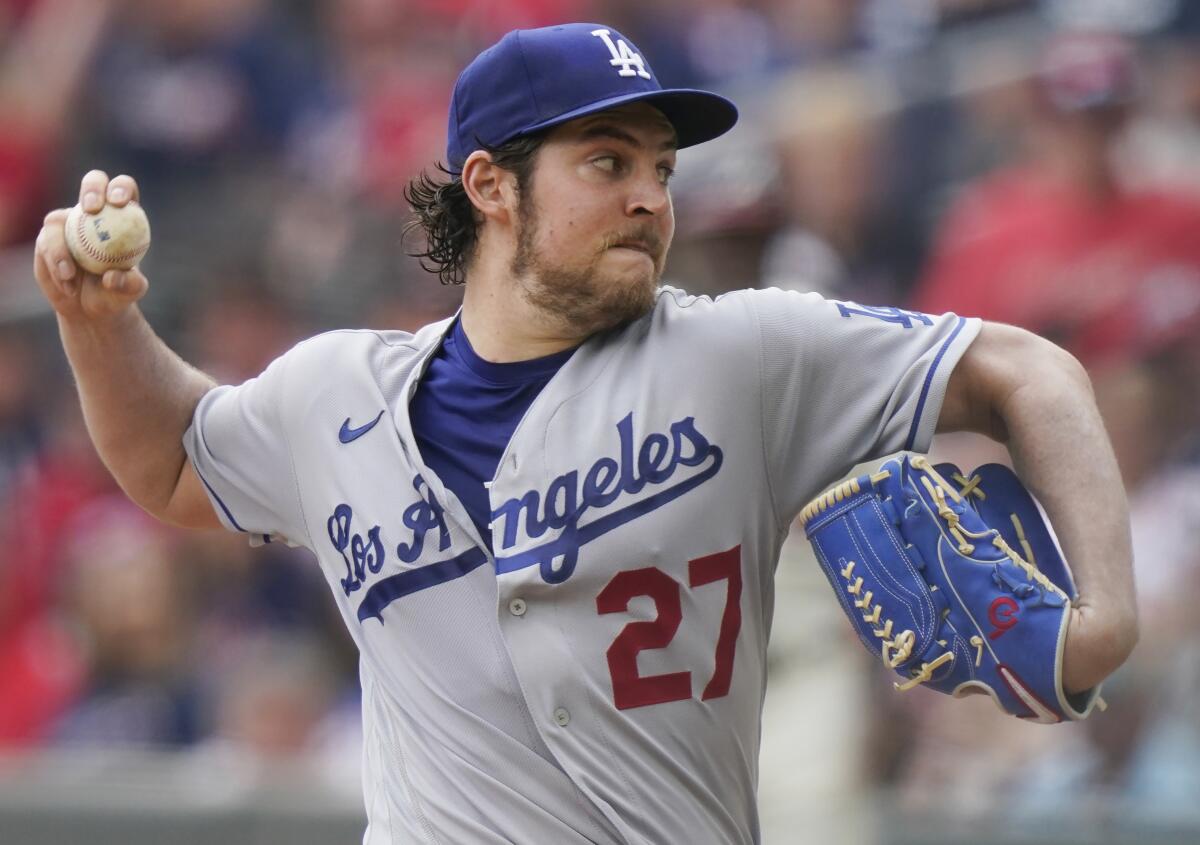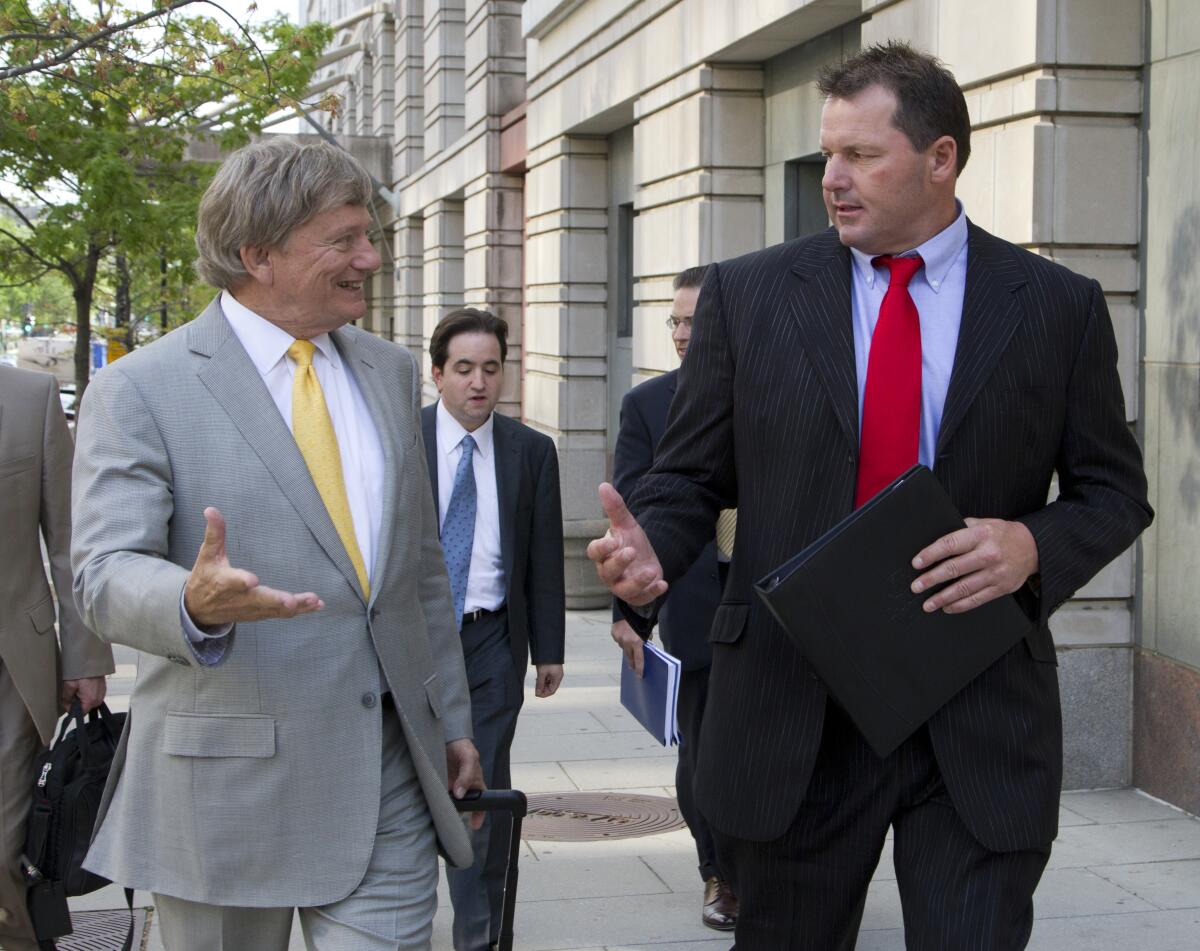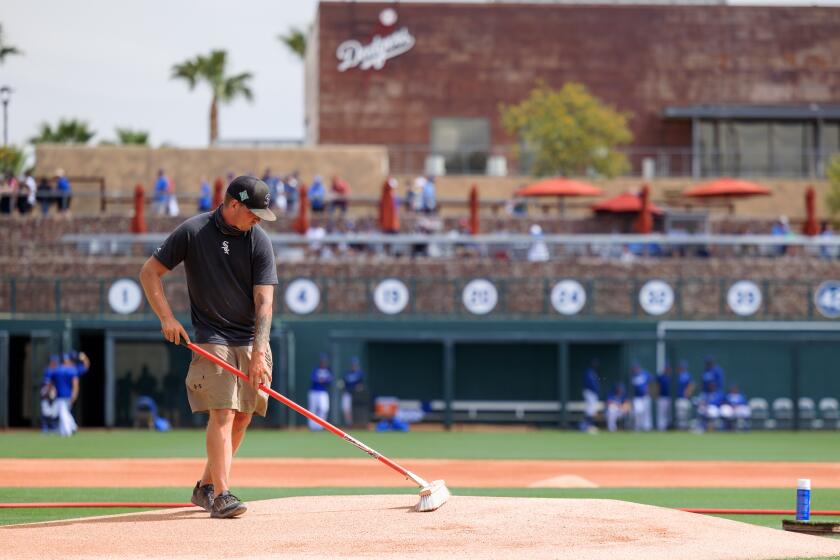He was Roger Clemens’ lawyer. Why he says Trevor Bauer is ‘absolutely’ right to fight

- Share via
The star pitcher believed he was wrongly accused. He spoke up, and he spoke out. He faced the possibility of prison time. He sued his accuser, and his accuser sued him back.
This is Trevor Bauer today, but this was also Roger Clemens 15 years ago. Clemens did everything he could to get his good name back.
It did not work.
“He’ll never be able to clear his name in terms of public perception,” Rusty Hardin told the Los Angeles Times.
Hardin was the attorney for Clemens, and he was speaking about Clemens. He might as well have been speaking of Bauer.
This is not a perfect parallel. Clemens was alleged to have used steroids. Bauer has been accused of sexual assault.
Complete coverage from the Los Angeles Times of Dodgers pitcher Trevor Bauer’s 324-game suspension from Major League Baseball.
When Clemens was identified as a steroid user in the Mitchell Report in 2007, he was 45. His career was over. He embarked on a legal crusade that took eight years to conclude.
Bauer, the Dodgers pitcher, turns 32 in January. He made his major league debut 10 years ago. Even under the best of circumstances, he would have precious few years left in his career.
He has not pitched in a major league game in 17 months. He will not be eligible to pitch in a major league game for another 17 months, unless an arbitrator reduces or overturns Bauer’s suspension for violating baseball’s policy on domestic violence and sexual assault.
The arbitrator’s decision is expected no earlier than next month. Neither Bauer nor the league have said what specific conduct was deemed to have violated that policy. However, Commissioner Rob Manfred levied a two-year suspension, the longest such penalty under the policy.
Bauer could have accepted a lesser suspension in exchange for agreeing not to appeal. The Los Angeles County district attorney already had decided not to file criminal charges against him.
“It’s worth it for anybody who thinks they did not do what they are accused of. It’s always better to fight it.”
— Attorney Rusty Hardin
He could have moved forward from that point. He has continued his workouts, as his posts on social media show, and he would like to play again.
However, he has filed defamation lawsuits against his accuser and five other parties, so any team that might be interested in employing him might well have to consider whether the possibility of years of legal proceedings would be a deterrent.
Bauer’s representatives declined to comment for this column.
Bauer has consistently denied any wrongdoing, portraying himself as a victim of a setup. To Bauer, any kind of settlement would be tantamount to an acknowledgment he did something wrong.
His vigorous legal activity makes clear he would rather attack than step back. His attorneys said in a court filing last year that “no settlements or cash offers have or ever will be made” to the accuser.
Puig will plead guilty to one count of making false statements after lying to federal agents investigating an illegal sports gambling operation run by Wayne Nix, a former minor league player.
After Bauer sued the accuser for defamation, she sued back, with her attorneys arguing Bauer had “again victimized [her] by leveraging his considerable resources to file a meritless lawsuit.”
Clemens is the only man to win seven Cy Young Awards. No one else has won more than five. On the field, he is a first-ballot Hall of Famer.
The only significant reason for a voter to reject him: a belief that he used steroids, and that he should be held accountable for it, despite a jury finding that he did not commit perjury when he testified to Congress that he had not used steroids.
“In spite of that, most people think he is guilty, because baseball fans are not well people,” Hardin said. “If you are accused of messing with their holy statistics, no matter whether you did it or not, it’s over for you.”
The Baseball Writers Assn. of America rejected Clemens for the Hall of Fame 10 times, all 10 times after the jury verdict. He will get an 11th chance before a veterans’ committee next month.

“Roger could afford to fight it and stay with it forever, until he got vindication through a verdict,” Hardin said. “It wasn’t enough to change people’s attitudes. You know why it didn’t change? It didn’t change sportswriters’ attitudes. That would have changed the public. Sooner or later, sportswriters have to recognize that it’s entertainment.
“In their world, they don’t really care what the truth is, with all due respect, just whether somebody said it.”
America has come to a place, Hardin said, “where the allegation has become self-proving.”
Bauer, like Clemens, has the financial resources to fight. Yet, if the lesson of the Clemens case is that allegations alone are sufficient to tarnish one’s name forever, would Hardin advise Bauer to keep fighting?
“Absolutely, yes,” Hardin said. “Roger always said, ‘Rusty, I’m going to fight it, not to get into the Hall of Fame, but so my four sons know I did everything I could to fight those false allegations. I care about them — not the public, and not the sports media.’
“So, yes, it’s worth it. It’s worth it for anybody who thinks they did not do what they are accused of. It’s always better to fight it.”
Major League Baseball mandates locker rooms for women at baseball stadiums. A legal squabble is brewing over who should pay for one at Camelback Ranch.
In the end, after Clemens’ first three rejections for the Hall of Fame, and seven years after his accuser sued him for defamation, the accuser reached a financial settlement — not with Clemens himself, but with an insurance company with which Clemens had a policy. Clemens himself did not pay, and he did not attend the settlement negotiations, still defiant after almost a decade.
“I was not present, nor would have I participated in paying one dime,” Clemens told the Houston Chronicle. “Everyone knows my stance on the subject.”
If the Clemens timeline is any indication, we could hear Bauer say something very similar in 2029.
More to Read
Are you a true-blue fan?
Get our Dodgers Dugout newsletter for insights, news and much more.
You may occasionally receive promotional content from the Los Angeles Times.









